OPCW report on 2018 Douma chemical attack may not reflect reality: Ex-inspector
A former lead investigator with the Organization for the Prohibition of Chemical Weapons (OPCW) has challenged the final report of the body’s Fact-Finding Mission into an alleged chemical attack in the Syrian city of Douma near the capital Damascus on April 7, 2018, saying it may not reflect the reality on the ground.
Ian Henderson raised the argument during an informal meeting of the United Nations Security Council on Monday, which was organized by the Russian Mission.
“I speak for myself, but I know there are other Douma FFM (Fact-Finding Mission) inspectors who hold the similar concerns that I do about the manner in which the investigation was controlled, locked-down… [as well as] the findings reflected in the final FMM report,” he said.
“We believe that there is more than sufficient information out there today that has demonstrated our points that the findings of the FFM report on Douma may not reflect the actual situation,” Henderson added.
Following the suspected chemical attack, Western countries were quick to blame it on the government of Syrian President Bashar al-Assad.
On April 14, 2018, the US, Britain and France launched a coordinated missile attack against sites and research facilities near Damascus and Homs with the purported goal of paralyzing the Syrian government’s capability to produce chemicals.
Damascus, however, said that no chemical attack had happened and that the incident had been staged by foreign intelligence agencies to pressure the government in the face of army advances against militants back then.
The OPCW concluded that chlorine had most likely been used in the attack. However, Syria and Russia both rejected the findings, saying they believed the incident had been staged by the White Helmets, a group which claims to be a humanitarian NGO but has long been accused of working with anti-Damascus militants and staging false-flag gas attacks.
Elsewhere in his remarks, Henderson underlined the need for launching a transparent technical inquiry aimed at clarifying the actual course of events in Douma in 2018.
“And this needs to be done in a way that demonstrates scientific rigor and integrity because that currently has not been done,” he said. “Perhaps, more importantly, we continue to hope that there's someone who’s willing and able, someone who has the courage to do something about this.”
In late 2019, whistleblowing website WikiLeaks published several batches of documents suggesting that the OPCW may have intentionally doctored its findings, notably avoiding revelations which may point to terrorists having been behind the alleged chemical attack.
One of the published documents showed Sebastien Braha, chief of cabinet at the OPCW, had ordered in an email that “all traces” of a report from Henderson be erased from the body’s registries.
Henderson had found out that the gas cylinders at the site of the Douma incident had been placed there manually most likely by militants given that the area was not controlled by Damascus at the time.
Russia: Syria militants plan toxic provocations in Idlib, Aleppo
Separately on Monday, the Russian Center for Reconciliation of Warring Parties in Syria said terrorists were planning new provocations involving toxics in the provinces of Idlib and Aleppo.
Rear Admiral Alexander Grinkevich, the Russian center’s deputy head, said at a briefing that there was “information about the next attempt by militants of illegal armed groups to organize provocations using poisonous substances in the southern part of the Idlib de-escalation zone.”
Terrorists, he added, are planning attacks on Aleppo’s Beitaroun and Idlib’s Bidama settlements in order to accuse Syrian government forces of using chemical weapons against civilians.
“The Russian Center for Reconciliation calls on the commanders of illegal armed groups to abandon armed provocations and take the path of a peaceful settlement of the situation in the areas under their control,” Grinkevich noted.
VIDEO | MEK trial in Tehran reveals heinous terrorist crimes
VIDEO | No Christmas in Gaza again
Iran condemns Israel’s brazen admission of Haniyeh murder
VIDEO | Conference in Islamabad explores Pakistan-Iran ties
Hamas condemns Israeli evacuation order of Indonesian Hospital
VIDEO | Yemen resistance remains resolute
'Easy target': Yemen warns 4th US carrier within reach
Iran military awarded $40 mln worth of vessel building contracts


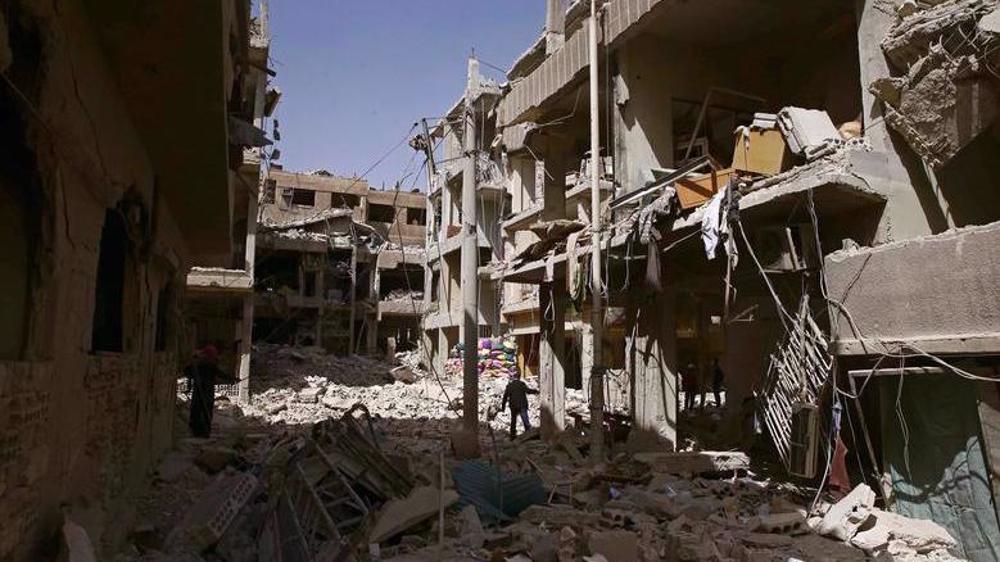


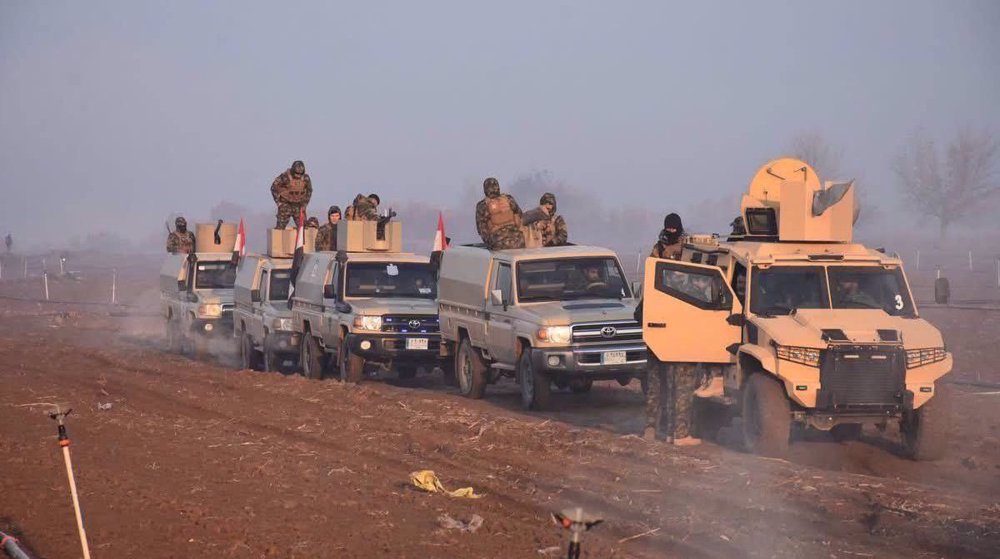
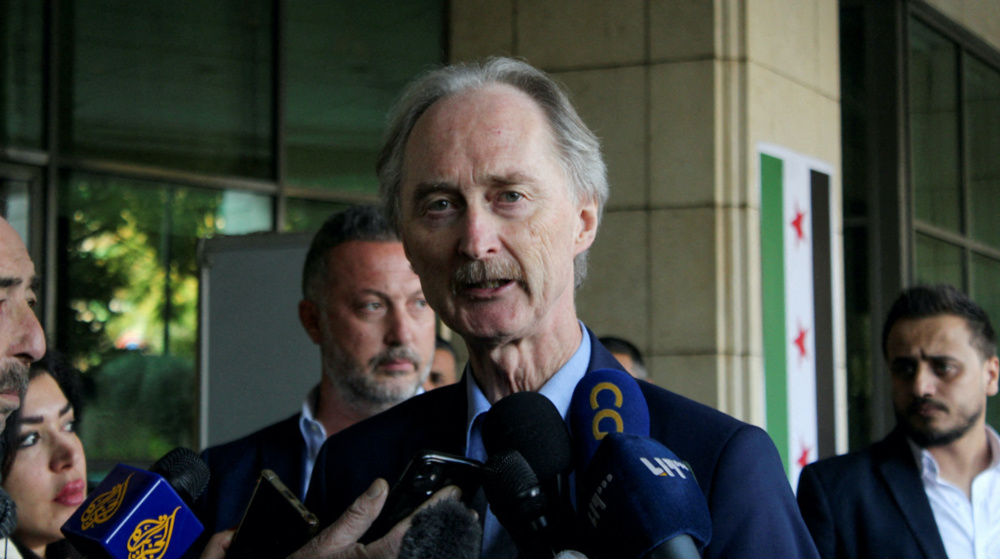
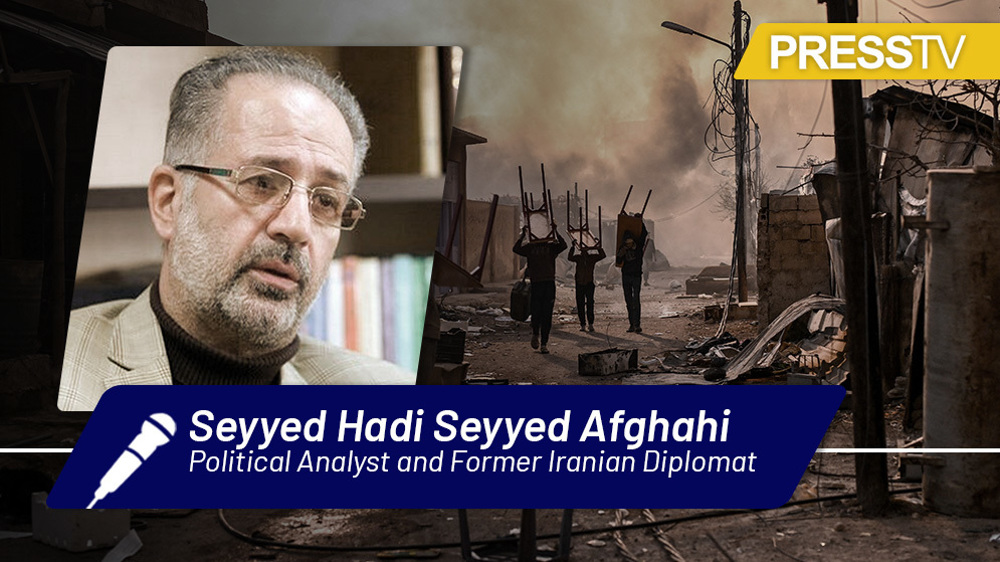



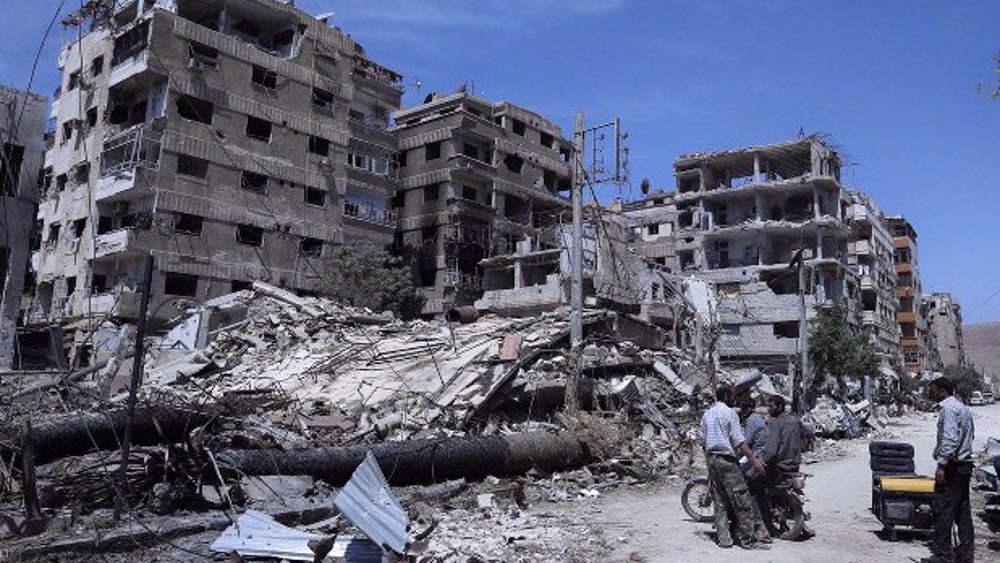

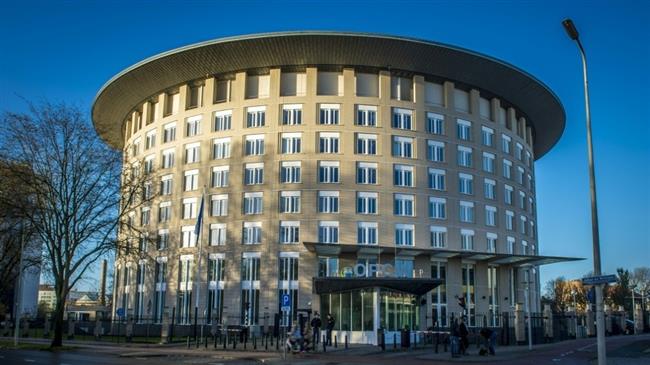
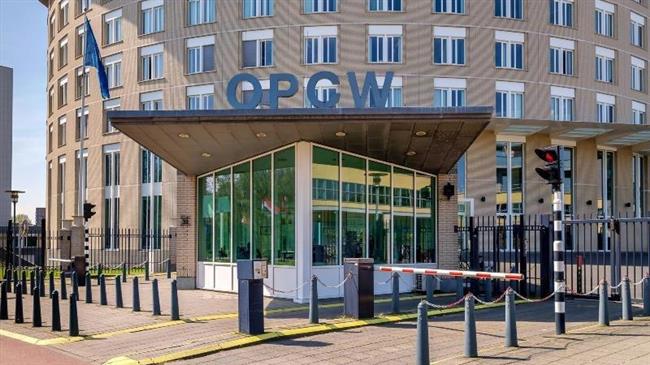
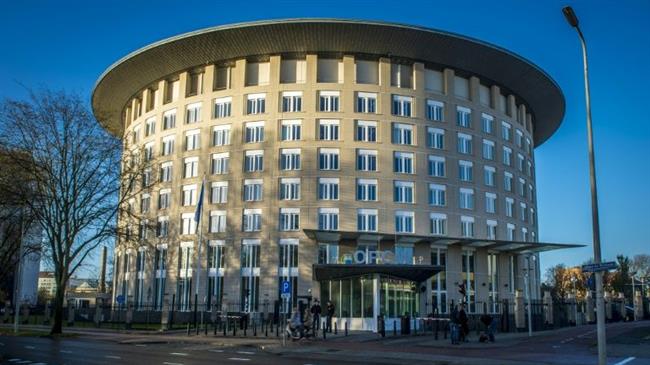
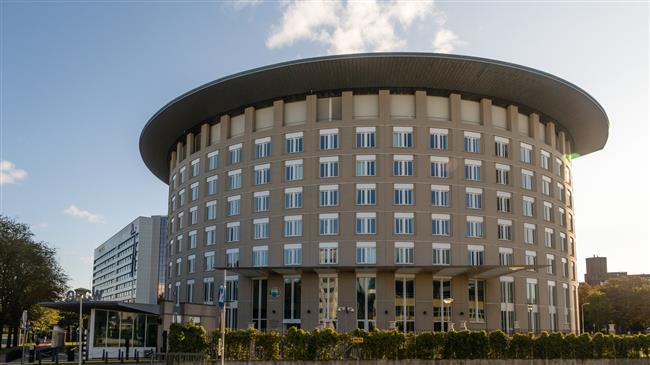
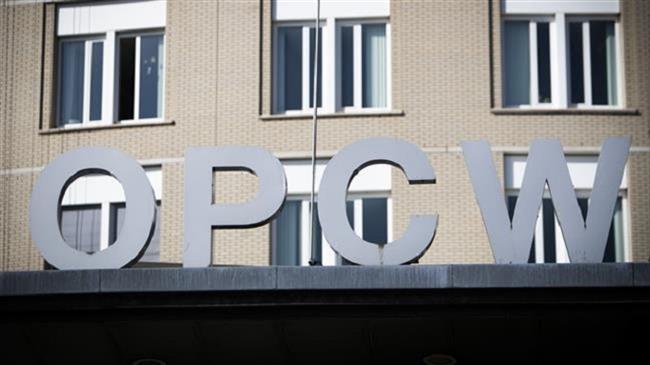



 This makes it easy to access the Press TV website
This makes it easy to access the Press TV website